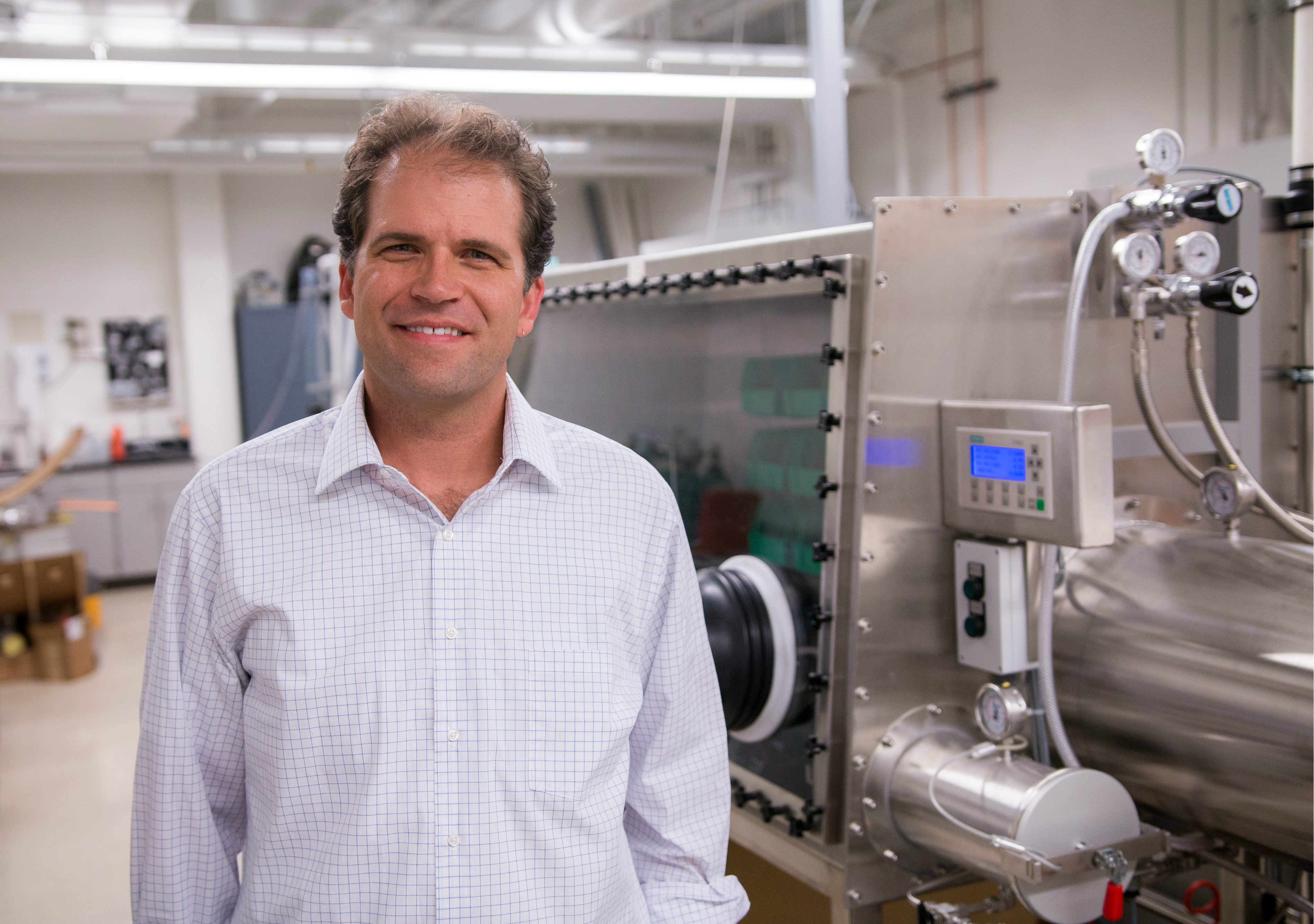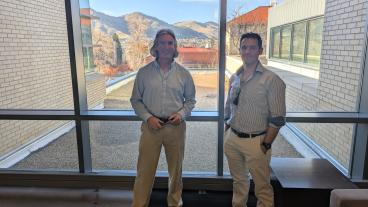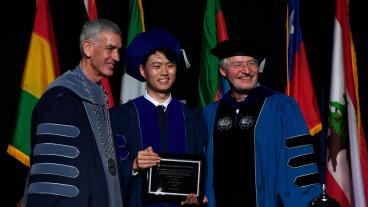 Steven DeCaluwe, assistant professor of mechanical engineering at Colorado School of Mines, has been selected for the U.S. Department of Energy’s Early Career Research Program.
Steven DeCaluwe, assistant professor of mechanical engineering at Colorado School of Mines, has been selected for the U.S. Department of Energy’s Early Career Research Program.
DeCaluwe will receive $750,000 over five years to support the development of novel neutron scattering experiments to understand and improve functional polymers used in hydrogen fuel cells and lithium-air batteries, paving the way for more efficient, durable and lightweight energy devices for electric vehicles.
“At this critical moment, it’s about giving people cheaper and cleaner ways to get around,” DeCaluwe said. “What we’re trying to do here is take a peek under the hood. When you modify the design for a device, you can usually see how the performance changes—but to improve it, you want to know why. Neutrons really let you see beneath the surface and understand why you’re getting the performance you get.”
DeCaluwe was one of 59 scientists at universities and national laboratories across the U.S. chosen for the award this fiscal year, selected from about 700 proposals, DOE’s Office of Science announced Aug. 9.
Two Mines faculty members—DeCaluwe and Physics Assistant Professor Jeramy Zimmerman—received the honor this year, the school one of only seven universities nationwide to have multiple winners.
DeCaluwe’s research could have significant impact on the U.S. energy economy, said Kevin Moore, dean of the College of Engineering and Computational Sciences.
“Although polymers are essential in the design of efficient storage devices used in many renewable energy applications, there aren’t good ways to know how they work when they are being used,” Moore said. “This research proposes the first-ever look inside of these energy storage devices and will let designers see what’s happening to the polymers during actual operation, which will help them design better systems.”
Neutrons are well suited for studying energy devices, DeCaluwe said. They are low energy and can measure materials without the risk of changing them. They are also more sensitive to the differences between “lighter” elements and those close to each other on the periodic table—with x-rays, nearby elements can often look the same.
Neutron reflectometry is a technique that can analyze “buried” layers and interfaces but is currently restricted to materials in static states. DeCaluwe’s research will enable neutron reflectometry to also look at active materials during device operation.
“If you want to see bottlenecks you have to watch while it’s operating. With hydrogen fuel cells, for example, you’ll be able to watch where water and hydrogen build up, or how the polymer structure changes while reactions occur,” DeCaluwe said. “If you look at it while it’s at rest, you can’t see that. It’s settled back to an equilibrium state.”
“With energy technology, we’re trying to make devices cheaper and more durable. Hydrogen fuel cells are starting to get a small foothold as something people can use but they still need to be cheaper, and lithium-air batteries are at this stage just a promising idea,” he said. “These measurements will provide direct insight into material limitations, helping us figure out how to get these devices to live up to their great promise.”
Now in its eighth year, the Early Career Research Program provides support to scientific researchers during the important early years when many do their most formative work.
DeCaluwe joined the Mechanical Engineering Department at Mines in 2012 after completing a National Research Council postdoctoral fellowship at the National Institute of Standards and Technology. He has a bachelor’s degree in elementary education and mathematics from Vanderbilt University and taught first and second grade for three years before earning his PhD in mechanical engineering at the University of Maryland.
"We are really excited about Steven’s DOE Early Career Award, which will allow him to observe how the surfaces of functional polymer behave in energy conversion and storage devices,” said Greg Jackson, director of research initiatives for CECS and professor of mechanical engineering. “This award for using in operando neutron studies combined with his recent NSF instrumentation award for in situ x-ray studies will enable him to become a real leader in understanding the role of functional interfaces in fuel cells and batteries.”
CONTACT
Emilie Rusch, Public Information Specialist, Communications and Marketing | 303-273-3361 | erusch@mines.edu
Mark Ramirez, Managing Editor, Communications and Marketing | 303-273-3088 | ramirez@mines.edu



